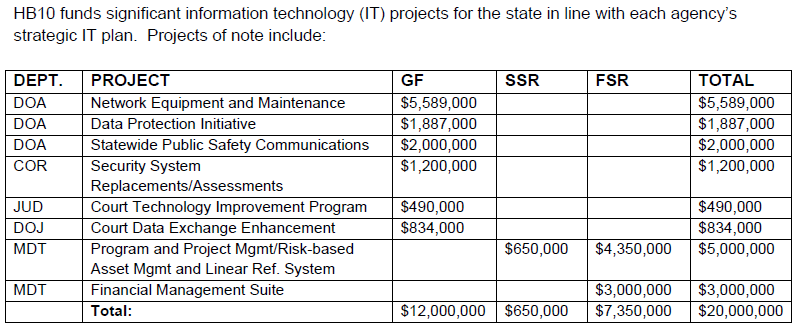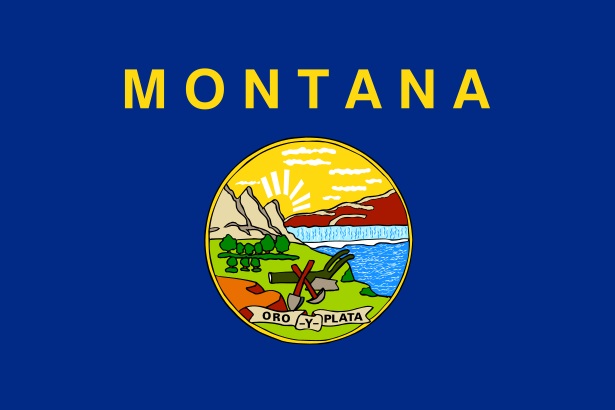
Anyways, it’s got a lot of information, and we’ll explore it over the coming days or weeks on this website, mainly because we don’t have anything better to do. I don’t know about you, but I grow tired of going to the same sites to see if they have any new information up yet. Invariably they don’t, and then I’m left with a quandary – what to do.
If I was a Republican I might be predisposed to make up information, but since I’m a Democrat, I’d much rather go looking for it. And that brings us back to the budget, however proposed it may be at this point.
How much does the average special session cost?
We know that in 2000 the special session was running at $50,000 a day. The last special session we had was in September 2007, called by Brian Schweitzer to deal with wildfire issues primarily. I can’t find anything on the cost of that one, but what’s clear is no one wants to spend money on it.
Of course, you have to figure that special sessions benefit legislators, who get to make $192 a day again for however long it takes to get things going. And with the number of times governors have turned around and called a special session the day after or pretty darn soon after the session ends, you know it’s not a real bother to them.
Alas, what can you do? Dig deeper, especially into infrastructure:
Now, let’s get into a few other issues.
Montana Apprentices & Children
| | One area you see on the budget is for Apprenticeship Training, and that’s so employers get $1,000 to train employees for the jobs they need to know to work at that company. This is a good idea, for as the report says, “this will help ensure that Montana continues to have a pipeline of highly skilled workers ready to compete in today’s global economy.” |
We have a duty of honor to fund things like this, because I never want to see what I saw in China, and that’s kids on the street trying to make a few coins by cleaning windshields. What are we asking for to help these kids? A measly $3 million.
Indian Issues in Montana in 2015
There are a few other Indian issues, such as funding for college and funding to maintain tribal language heritage and whatnot. I like all these things, but in the tight budget climate we have today, I wonder if all with get through. I’d personally rather see the feds take the lead on funding tribal languages to the tune of $1.5 million, but compared to some of the other things we waste money on, that doesn’t seem like much. Taken altogether, however, and it adds up.
These are things to think about, especially in a climate where everyone has to tighten their belt. And we’re getting to that point, where everyone will have to. What will we do when that federal spigot is turned off? It only takes one major world crisis for a war to start, and when the wheels of mobilization begin, you’d best expect some changes in national spending. That is of course if we untie one arm from behind our back, like those WWII folks did.
Interesting Items in HB 3
House Bill 10 – IT Improvements
House Bill 13 – State Employee Pay Raise
The following is just a list of miscellaneous things I found interesting, and which I’ll talk about in the coming days:
- Agency Bills: There are several pages of agency bill requests in the Orange Book, and this is when different state agencies get a legislator to draft a bill (or they draft it and just have the schmo put their name on it) and then it might get a hearing. We’ll have to go over some of these on another day, because there’s just too many.
- Economic Data: The real meaty economic data for the Orange Book comes around on page 30 or so and goes for ten pages. Here you get all kinds of wonderful tables, and we’ll have several posts over the coming weeks talking about that data. It’s good stuff.
- County Narratives: Beginning on page 51 of the budget highlights book you’ll find county profiles. These are great, and these are the tools you need to find those extra 9 Republicans when those 6 silver bullets are spent. Find out where the money is, where the money needs to be, and how these counties can get it. It’s the Democrat’s job to entice those Republicans with the spending stick or just about anything else that will get them over to our side. Look at term limits, can that help? How about business interests, can that help? If it’s legal, it’s politics.
I’m particularly looking forward to comparing some counties, and we’ll start with Missoula and Petroleum, and then focus in on how Petroleum can join together with the surrounding counties when county consolidation becomes necessary down the road. If you’d like to learn more about county splitting and how Petroleum was the last Montana county to be created, check out my book Hustlers and Homesteaders:









